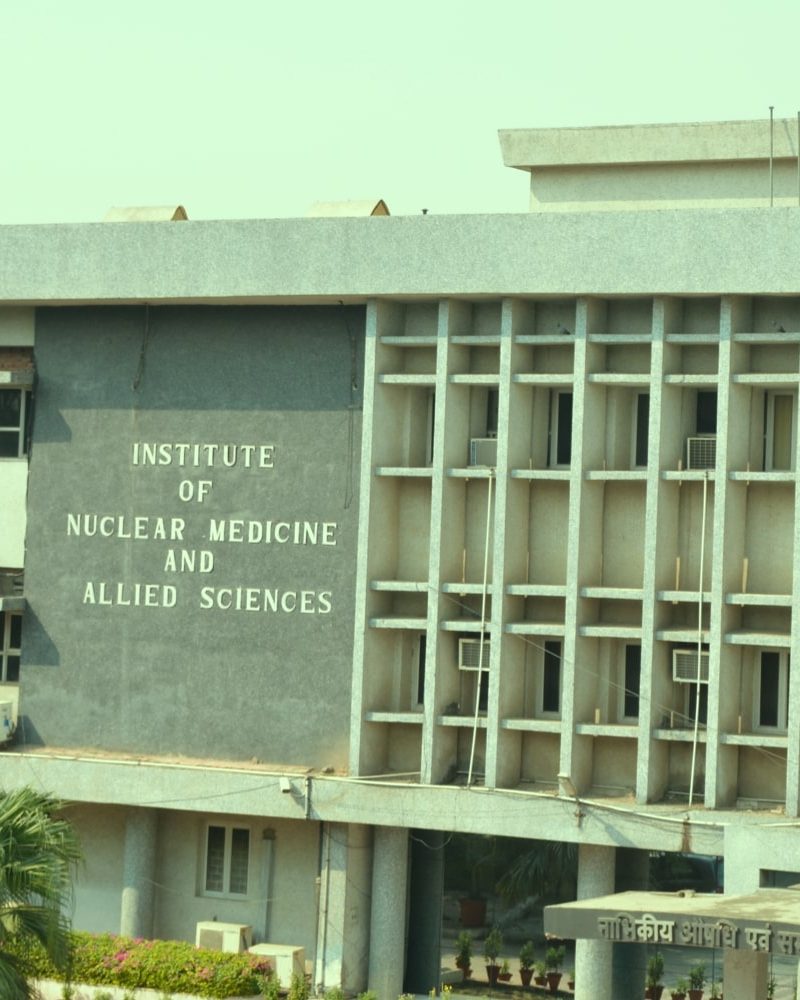The research with biomaterials involves not only the development of new materials but also the certification of safe and effective uses and identification of new applications for materials that have been in use for decades. Therefore it is essential to carry out the basic research to establish and standardize the new methodologies in the development of improved biomaterials or medical devices with new & improved surface properties and designs before releasing the certification for safe and effective use.
The study was undertaken by DRDO to evaluate the indigenously developed Dental Implant material by means of biological studies and corrosion behavioral investigations and also to establish newly developed surface preparative methodologies. The data is supported by animal experimentation studies as well as histological studies.


To assess the acute in-vitro hemolytic activity of materials intended for prolonged contact with bone and soft tissues. Hemolytic percentage is 0.08% only, which is not significant.
To assesses the allergenic potential of CP titanium metal to skin. CP Titanium is devoid of sensitization potential at all stages of observation declaring that it has no allergic potential.
To assesses the degranulating (cytotoxic) potential of saline extract of CP Titanium. The degranulated mast cell percentage is insignificant as per standards.
To assess the potential for irritant in toxic leachates from titanium metal that could be irritating to mucosal tissue. No distinctive histopathological differences could be found between the control and test material extract treated groups and it was concluded that the CP Titanium does not leach out any chemical / ions to cause mucosal irritation.
To assess the in-vivo toxicity of titanium intended for prolonged contact with the sub-cutaneous tissues. No adverse reaction was observed, recommending the CP Titanium material to be an acceptable biocompatible metal.
To assess the toxicity of the material after short-term oral administration. No mortality, morbidity, nor any negative body weight gain was observed. Blood analysis for haematological and biochemical evaluation did not reveal any significant differences between test groups and control groups.
The corrosion investigations have been carried out in isotonic saline solution (0.9% Sodium Chloride) and artificial saliva at 25° C. The composition of modified Fusayama’s artificial saliva used is as given below:
| Sodium Chloride ( NaCl) | 0.400g |
| Potassium Chloride (KCl) | 0.400g |
| Sodium Dihydrogen Phosphate ( NaH2PO4,H2O ) | 0.690g |
| Urea (NH2CONH2) | 1.000g |
| Calcium Chloride(CaCl2) | 0.795g |
These were dissolved in 1000ml of double distilled water to get the electrolyte solution. The following electro-chemical corrosion tests have been carried out on circular disc samples of differing thickness:
The study was extended to examine the bone reaction to titanium implants with various surface characteristics. The topography alone may be a controlling factor in the clinical performance of dental implants. Hence the treated surface has been evaluated for bone–metal interface by X-Ray, Radiography & Optical Microscopy in animal experimental studies.
The biocompatibility of the dental implant has been examined by animal experimental studies by implanting it in rabbits and primates. The bone-implant interface was analyzed by X-Ray /Microradiography, Optical Microscopy and Histological studies.
To investigate the biocompatibility, suitability, acceptability, and osseo-integration of indigenous CP-titanium, already tested for its biological, corrosion and surface science properties, the experimental study was carried out in 10 rabbits. The experimental animals were examined after implantation of titanium implants in the bone by standard surgical procedures and by X-Ray till they were euthanised for integrated sample investigations. The X-rays /Microradiographs taken during healing process and after the animals (rabbits) were sacrificed reveal no evidence of infection throughout the healing period at surgical sites and no sign of radiolucencies around the implant’s entire surface. The findings have been further confirmed by scanning the entire bone-implant interface under the optical microscope, which revealed an osseo-intergration level of up to 80%, which is expected to increase over a period of time. The analysis of the results indicates the suitability and acceptability of the Indigenous Titanium Dental Implant.
The Multicentric Clinical Trials of indigenously developed Dental Implants have been carried out at different centers.
The above tests / investigations and multicentric clinical trials recommend the use of the indigenously developed CP titanium Dental Implants for oral rehabilitation of dentally crippled patients. These devices are cost effective as compared to the imported devices and a large section of our population can be benefited.

Indident is a renaissance in the field of dental implants. It is spearheaded by the Institute of Nuclear Medicine & Allied Sciences, Defence Research & Development Organisation, Min of Defence, India.
Indident Medical Devices 3E/15 Jhandewalan Extn , New Link Road, New Delhi 110055
91-11 41543747
9810176673
9810294477
Copyright © 2024 Indident Medical Devices. All rights reserved.
Powered by Androgeus